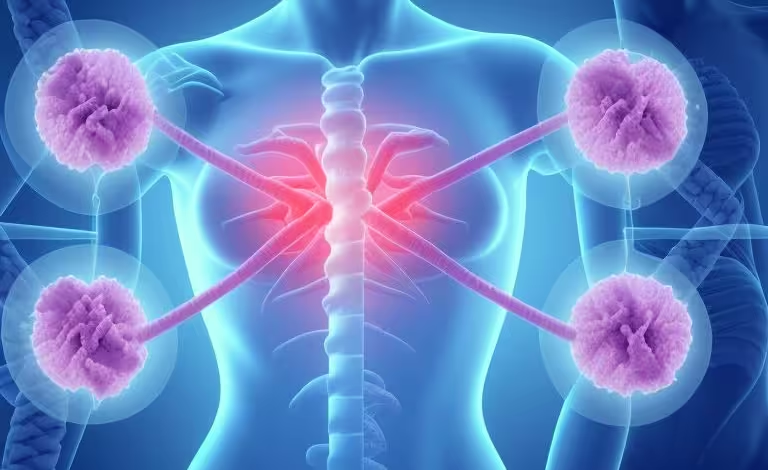
BRCA Gene Mutations: What You Need to Know
BRCA gene mutations are genetic changes that can significantly impact your health, especially concerning your risk of certain cancers. This guide will break down what BRCA gene mutations are, how they affect your body, and what steps you can take if you have one. Let's dive into this important topic and make it easy to understand!
What Are BRCA Gene Mutations?
BRCA genes (BRCA1 and BRCA2) are part of your DNA that help repair damaged DNA. When these genes mutate, they can't fix the damage as efficiently, leading to an increased risk of cancer, especially breast and ovarian cancers.

Understanding DNA and Genes
To grasp the importance of BRCA genes, let's start with the basics:
- DNA: The blueprint of life, containing instructions for building and maintaining your body.
- Genes: Segments of DNA that determine specific traits and functions.
- Mutations: Changes in the DNA sequence that can be harmful or benign.
The Role of BRCA1 and BRCA2
BRCA1 and BRCA2 are tumor suppressor genes. They help repair DNA breaks that can lead to cancer. Mutations in these genes impair their function, increasing cancer risk.
How Do BRCA Gene Mutations Affect You?
Having a BRCA gene mutation doesn't mean you will definitely get cancer, but it does increase your risk. Here's what you need to know:
Cancer Risks
- Breast Cancer: Women with BRCA1 mutations have a 55-65% risk, while those with BRCA2 mutations have about a 45% risk.
- Ovarian Cancer: BRCA1 mutations carry a 39% risk, and BRCA2 mutations have an 11-17% risk.
- Other Cancers: These mutations can also increase the risk of pancreatic cancer and, in men, prostate cancer.
Inheritance
BRCA gene mutations are inherited in an autosomal dominant pattern. This means if one parent carries the mutation, there's a 50% chance of passing it to their children.
Testing for BRCA Gene Mutations
Genetic testing can reveal whether you have a BRCA mutation. This involves:
- Blood Test: A simple blood sample is analyzed in a lab.
- Results Interpretation: A genetic counselor can help understand the results and implications.
Steps to Take If You Have a BRCA Mutation
Discovering you have a BRCA mutation can be overwhelming, but there are proactive steps you can take.
Medical Surveillance
- Regular Screenings: Increased frequency of mammograms and MRI scans can help detect cancer early.
- Self-Exams: Monthly breast self-exams can help you notice any changes sooner.
Preventive Measures
- Prophylactic Surgery: Some choose to remove breasts (mastectomy) or ovaries (oophorectomy) to reduce cancer risk.
- Medication: Drugs like tamoxifen can lower breast cancer risk.
Lifestyle Changes
- Healthy Diet: Eating a balanced diet rich in fruits, vegetables, and whole grains can support overall health.
- Regular Exercise: Staying active can help maintain a healthy weight and reduce cancer risk.
- Avoid Smoking and Limit Alcohol: Both can increase cancer risk.
Emotional and Psychological Support
Finding out you have a BRCA mutation can be tough emotionally. Here are ways to cope:
Counseling and Support Groups
- Genetic Counseling: Professionals can provide guidance on your risk and options.
- Support Groups: Connecting with others who have similar experiences can provide comfort and advice.
Family Communication
Discussing genetic risks with family members is crucial as they may also be at risk. Open and honest communication can help everyone make informed decisions about their health.
Frequently Asked Questions About BRCA Gene Mutations
What are the chances of passing BRCA mutations to children?
Each child of a parent with a BRCA mutation has a 50% chance of inheriting the mutation.
Can men have BRCA mutations?
Yes, men can have BRCA mutations, which increase their risk of prostate and breast cancers.
Are there any symptoms of having a BRCA mutation?
There are no symptoms of the mutation itself, but it increases the risk of developing certain cancers.
How often should I get screened if I have a BRCA mutation?
Your doctor will recommend a screening schedule based on your individual risk factors, but typically more frequent screenings are advised.
Can lifestyle changes really reduce my cancer risk?
Yes, a healthy lifestyle can help lower your overall cancer risk, though it doesn't eliminate the risk entirely.
Resources and References
For further reading and support, check out these valuable resources:
- National Cancer Institute: Comprehensive information on BRCA mutations and cancer risks.
- Breast Cancer Research Foundation: Updates on the latest research and support for those affected by BRCA mutations.
- Bright Pink: A nonprofit focused on the prevention and early detection of breast and ovarian cancers.
Understanding BRCA gene mutations and their impact is crucial for making informed decisions about your health. By staying informed, getting regular screenings, and making healthy lifestyle choices, you can take proactive steps to manage your cancer risk effectively. Remember, support is available, and you are not alone in this journey. Stay proactive and take control of your health today!

